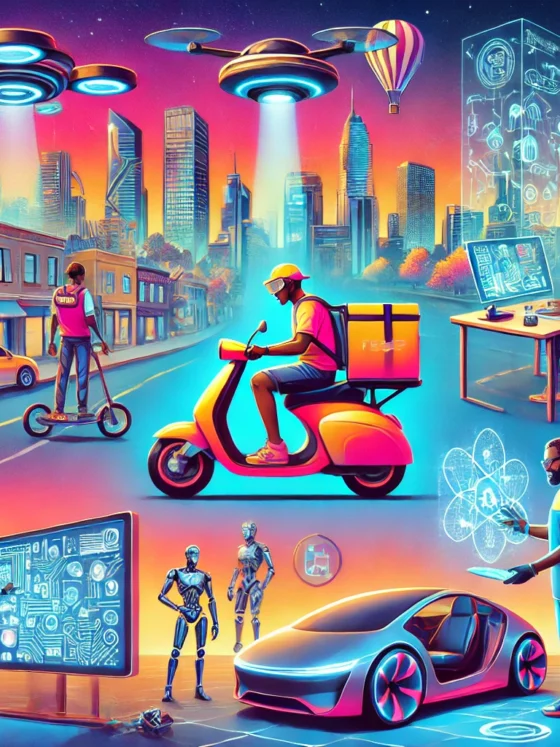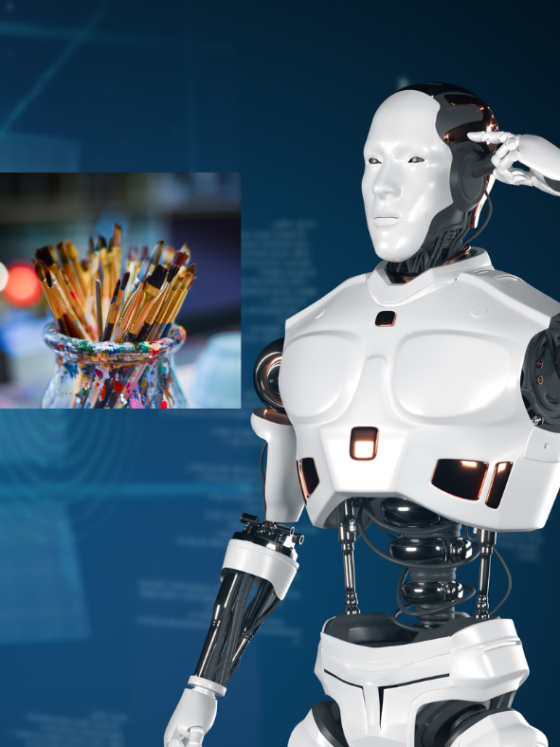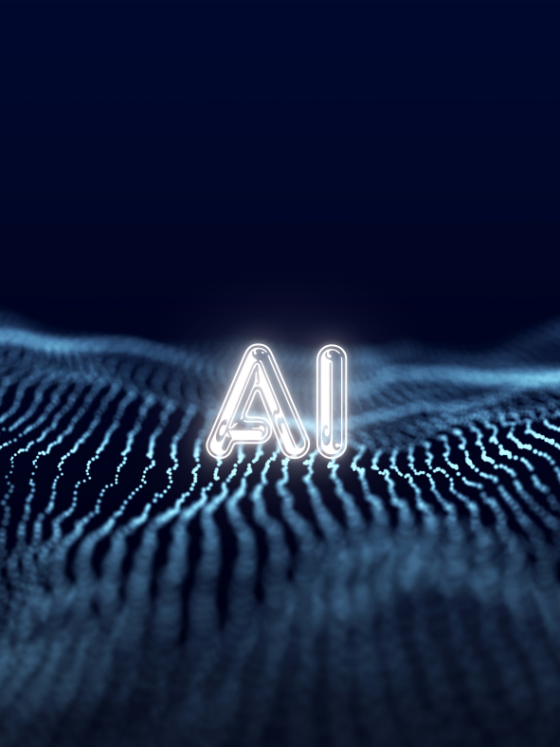Top 10 AI-Proof Jobs in the Age of AI

Artificial Intelligence (AI) is transforming the job market. Many jobs that once seemed secure are now at risk of automation.
However, not all roles are equally vulnerable. Some professions are better equipped to withstand automation because they rely on uniquely human skills, creativity, and empathy.
In this blog, we’ll explore AI-proof jobs —roles that are less likely to be replaced by AI. This guide will also give you practical steps to stay relevant and adapt to an AI-driven world.
What is AGI?
When discussing AI and job loss, we often hear about Artificial General Intelligence (AGI). AGI is an advanced type of AI that can understand, learn, and apply knowledge across a wide range of tasks, much like a human and even beyond human intelligence.
Its versatility makes it capable of handling complex jobs, leading to concerns about job displacement.
But what about the new job opportunities that this new AI age will bring?
Many roles still require a human touch, creativity, and the ability to connect on a personal level, which machines struggle to replicate.
These roles are often referred to as AI-proof jobs.
Job Displacement
Job displacement due to AI is a real issue. Many white-collar jobs, particularly those involving repetitive tasks, are at risk. Tasks like data entry, customer service, and certain types of accounting are now being automated at a large scale.
According to this McKinsey report, up to 30% of tasks within 60% of jobs could be automated using existing technologies.
But it’s not all doom and gloom. New opportunities are emerging alongside these changes.
For example, a publication called Will Robots Take My Job? tracks automation risks across various careers.
Using this data, the U.S. Career Institute created a list of the top 65 jobs least likely to be automated.
Surprisingly, they found that some jobs have a 0% risk of automation because of the unique skills and knowledge they require.
Top AI-Proof Jobs
Let’s look at some of the top AI-proof jobs identified by experts. These roles have low automation risks and rely on skills that are difficult for AI to replicate.
1. Nurse Practitioners
Nurse practitioners provide essential health care and support. Their work involves empathy, complex decision-making, and hands-on care that machines cannot replicate. Personal connections and the ability to adapt quickly to each patient’s needs make this role resilient to automation.
2. Choreographers
Choreography requires creativity and a physical presence that AI lacks. Choreographers create dance routines to tell stories and convey emotions. This artistic field relies on personal expression, making it an AI-proof job.
3. Physician Assistants
Similar to nurse practitioners, physician assistants diagnose, treat, and counsel patients. This role demands empathy, complex judgment, and adaptability. AI cannot match the human connection that patients seek from health professionals.
4. Mental Health Counselors
Mental health counselors provide emotional support and guidance, often dealing with sensitive issues. Empathy, listening skills, and the ability to connect with clients make this job difficult for AI to replace.
5. Nursing Instructors and Teachers, Post-Secondary
Instructors offer more than just information; they provide mentorship and real-time feedback. AI can assist in teaching, but the guidance and encouragement offered by human instructors are hard to replicate.
6. Coaches and Scouts
Coaching and scouting rely on interpersonal skills, intuition, and motivation. Coaches connect with their teams and provide personal encouragement, which AI cannot do well.
7. Athletic Trainers
Athletic trainers help athletes prevent and recover from injuries. Their work is hands-on and tailored to each person’s needs, requiring adaptability and a human touch, making it an AI-resistant profession.
8. Physical Therapists
Physical therapists create personalized treatment plans for patients. While AI can assist, it lacks the empathy and intuition required to deliver hands-on care that patients rely on.
9. Orthotists and Prosthetists
Orthotists and prosthetists design and fit orthopedic devices, like braces and prosthetics. This job blends technical skills with patient care, which AI struggles to match.
10. Occupational Therapists
Occupational therapists help patients develop daily life skills. The role demands creativity, patience, and empathy —uniquely human qualities.

These jobs are resilient because they require emotional intelligence, creativity, and hands-on skills —qualities that machines struggle to replicate.
The demand for such roles will likely grow, as they provide personal, nuanced support that AI cannot offer.
This list is not exhaustive, it is important to take it with a grain of salt.
For example in the case of teachers, what this role is likely to look like is more of guidance and encouragement while the AI does the hard work of teaching.
Roles like surgeons and practitioners in the medical field are highly specialized roles that require time and dedication not to mention resources. The key thing is to find out what you’re interested in and get really good at it.
Other roles like engineering may evolve by creating new job opportunities for Machine learning experts and deep learning compared to the current generalized coders.
The fast pace by which these models are being released shows that the best way to learn is by building your own models.
What Should You Do?
Here are some steps you can take to future-proof your career:
1. Educate Yourself and Upskill
The future belongs to those who stay ahead of the masses by upskilling. Start by identifying areas where AI can complement your skills.
Take time to learn new, valuable skills that will make you competitive in the job market.
If you’re looking for AI courses that can boost your career, check out our courses at the Freelancers Mastery Hub.
2. Use AI Tools to Boost Your Business
AI can handle repetitive tasks, freeing you to focus on strategic and creative elements. By now, you know that AI technology is here to stay.
Jump on the bandwagon and use AI whenever and however you can. Here are some ways you can use AI in your freelance business.
Learning to work alongside AI can help boost productivity and efficiency, allowing you to deliver value that goes beyond what machines can do alone.
Some of AI use cases in freelancing include:
- Ad Creatives: AI tools can instantly generate thousands of campaign taglines based on target audiences and brand guidelines.
- Graphic Design: Use AI to apply new styles, color palettes, and effects with ease.
- Copywriting: AI tools can help draft and refine copy, saving time.
- Data Analysis: AI-powered tools can provide data-driven insights for marketing campaigns.
- Social Media Management: AI tools can optimize post timing and suggest content ideas based on engagement data.
3. Develop Interpersonal and Soft Skills
Most AI-proof jobs involve a high level of emotional intelligence and people skills. Skills like empathy, active listening, and communication make a big difference in freelance work.
Soft skills set you apart, especially in roles requiring client interaction or customer service. Invest time in developing these abilities, as they’re more valuable than ever in the age of automation.
4. Embrace Specialization
Specialized fields tend to be more resistant to AI. Identify your area of expertise and aim to excel in it. Specialization not only provides job security but also makes you a go-to expert in your field.
Emerging AI-Driven Job Opportunities
AI isn’t just a threat; it’s also creating new job opportunities. Here are some emerging fields that will likely see demand for skilled professionals:
- Cybersecurity: As more processes go digital, the need for cybersecurity grows. AI can assist in this field, but human oversight and expertise remain critical.
- Ethics and AI Governance: AI brings ethical concerns, especially around privacy and transparency. Roles focused on AI ethics and governance will continue to pop up as technology continues to evolve.
- Regulatory Technology (RegTech): AI-driven compliance and regulation tools are growing, creating new roles for those with expertise in finance, law, or compliance.
These fields offer promising opportunities for freelancers who want to work in emerging industries with longevity and relevance.
Next Steps
The future of work is here, and it’s driven by AI. But as a freelancer, you have the flexibility and freedom to adapt.
From my experience, AI can boost your productivity in exponential ways ultimately helping you make more money.
The pool of people with advanced AI skills is still limited. In this new age, businesses will continue to seek freelancers and consultants to solve complex business problems using AI.
The more you use it the better you become at it and the more you’re prepared for the future which is already here.
Keep learning, keep networking, and embrace the tools that will help you stay relevant.
The opportunities that lie ahead are tremendous.
Hopefully, this blog post has encouraged you to jump on the AI bandwagon.
Interested in learning more? Join the Freelance Mastery Hub where you can learn more about AI, connect with others, and stay ahead in the fast-changing freelance world.











